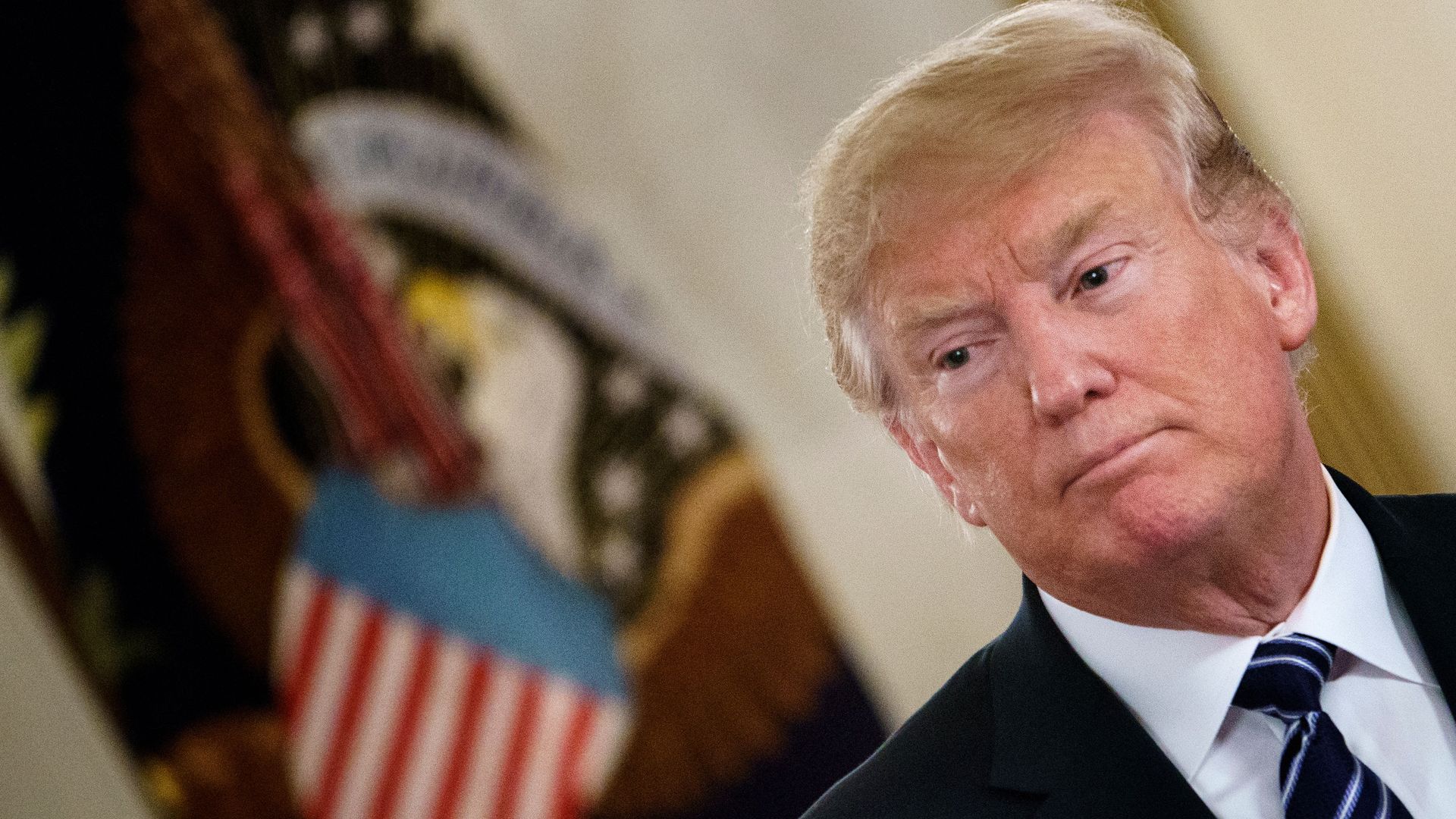Jul 24, 2018 - Economy
White House unveils $12 billion plan for U.S. farmers hit by trade war
Add Axios as your preferred source to
see more of our stories on Google.

President Trump. Photo: Brendan Smialowski/AFP/Getty Images
Add Axios as your preferred source to
see more of our stories on Google.

President Trump. Photo: Brendan Smialowski/AFP/Getty Images